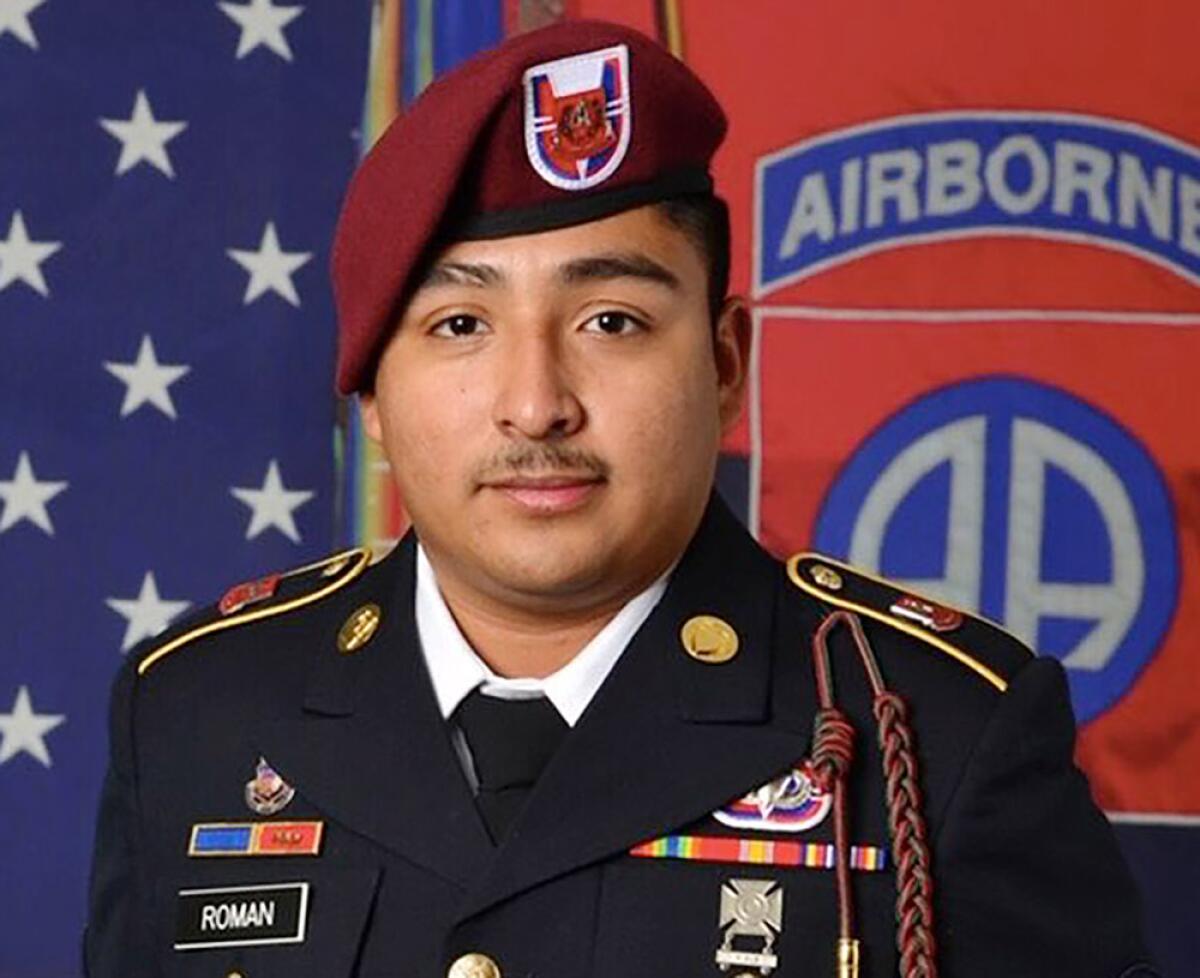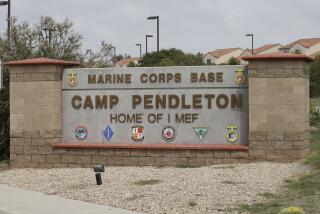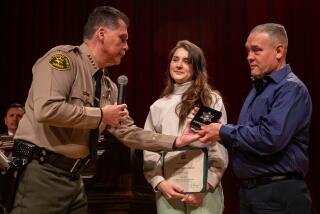Lawmaker urges new probe after Army closes investigation of Chino soldier’s slaying

WASHINGTON — The U.S. Army has closed an investigation into the killing of a paratrooper from California whose head was found severed from his body, according to Rep. Norma Torres, who is asking the Pentagon’s inspector general to examine whether the military’s probe was flawed.
Enrique Roman-Martinez, 21, of Chino was stationed at Fort Bragg in North Carolina when he went missing in May 2020. Roman-Martinez had gone camping during the Memorial Day weekend with seven fellow soldiers on an island off the North Carolina coast. His partial remains later washed ashore near the camp.
In a letter Tuesday to Sean O’Donnell, acting inspector general of the Defense Department, Torres (D-Pomona) said the Army “regrettably” closed the investigation this summer “with no justice for Roman-Martinez or his family.” She requested a “full and independent examination of the response to and investigation of Roman-Martinez’s murder.”
“As we look forward to the holiday season, Spc. Roman-Martinez should be with his family. He should have been already discharged from the military and settling into his new life,” Torres wrote. “Instead, his family has spent over 16 months painfully waiting for justice with no end in sight. During this time, the family has lost all confidence in the Army Criminal Investigation Command.”
An Army spokesperson said “we welcome an outside view and will follow-up on any investigative leads that the IG identifies.”
In a phone interview, Torres raised questions about the other soldiers on the camping trip, who waited 19 hours to report Roman-Martinez missing.
“When they came across a park ranger, who approached them because they were parked illegally on the campground, that would’ve been the time for them to say: ‘Hey, there’s a soldier that’s missing. One of the campers, one of our friends, is missing,’” Torres said.
“But they didn’t say that,” she said. “They didn’t say that because they said they believed that he was suicidal and they were afraid to bring attention to that. Well, if he was suicidal, I think that is the bigger reason to ask for help and to say that your friend and colleague is missing. But they didn’t do any of that.”
Torres wants a review of how the military communicated with the family and addressed language barriers; the Army’s treatment of any people of interest; requirements for soldiers to report a missing member or co-worker; the timeline of the investigation; and whether the pace of the probe was affected by any logistical or jurisdictional hurdles.
In August, the Army Criminal Investigation Command began offering up to $50,000 for credible information on the circumstances of Roman-Martinez’s death. The Army said it had created a specialized task force comprised of special agents and FBI personnel to investigate it.
The task force said it executed more than 100 warrants and subpoenas, conducted over 400 interviews across several states and went to the island seven times for air, land and sea searches. Agents also reported examining more than five terabytes of digital data — including from cellphones — and inspecting vehicles and more than 130 other items, but none revealed any trace of blood or DNA.
CID Special Agent Steve Chancellor said in the Aug. 2 statement that the task force hadn’t recovered any physical, forensic or testimonial evidence linking anyone to Roman-Martinez’s death.
“I have been a criminal investigator for more than 40 years and have worked hundreds of death investigations,” Chancellor said. “This tragic death is a real mystery on what exactly happened. All logical theories or suspicions that were developed to date have been investigated and either discounted or disproven. We have and are still looking at all possibilities, but need the public’s help.”
Torres criticized the Army for failing to revoke the seven soldiers’ privileges to leave the base on weekends and after hours. While there’s no reported evidence that they were involved in his death, Torres said the Army’s inaction could have allowed them to return to the site.
“I just think that a lot of the things that I have brought before them should’ve been done automatically. They shouldn’t have taken a member of Congress to ask for those things,” she said. “I hate to have to tell the Army how to conduct their day-to-day business when it comes to missing and murdered enlisted members of our military, but at this point I feel that I have no other choice.”
More to Read
Get the L.A. Times Politics newsletter
Deeply reported insights into legislation, politics and policy from Sacramento, Washington and beyond. In your inbox three times per week.
You may occasionally receive promotional content from the Los Angeles Times.











